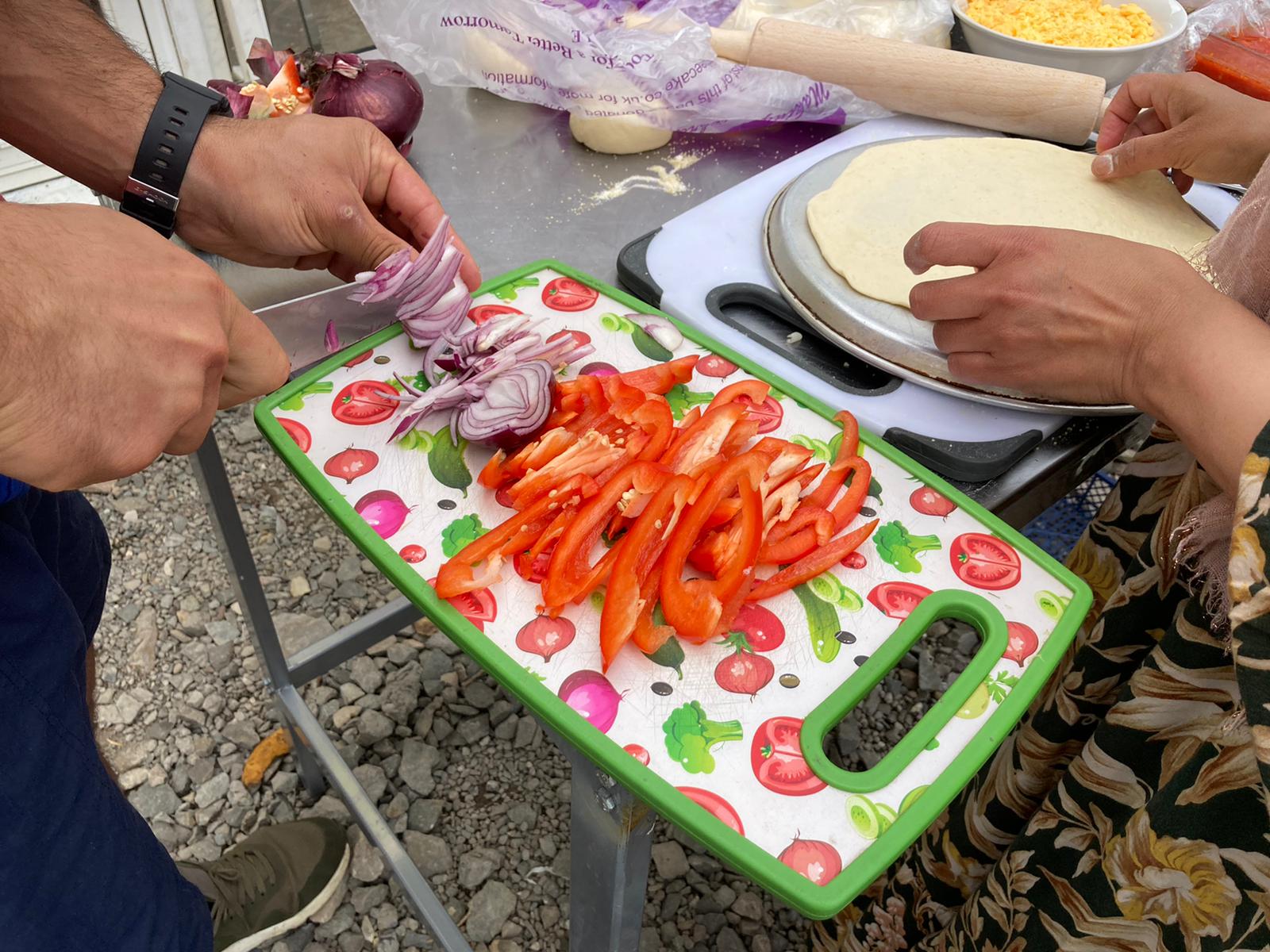DeathWrites Blog
Sean Wai Keung: On Dying to Eat: Cross-Cultural Perspectives on Food, Death and the Afterlife (ed. by Candi K. Cann) | 12 April 2023
In this short review essay, Sean Wai Keung sets out some of the interrelations between food rituals, death, eating and grieving.

If life can be defined as a state of constant consumption cycles (energy comes in, energy goes out, etc.) then death can also be defined as a state of non-consumption and stillness. It's only after we're dead that we no longer need to take in any energy, after all. In part because of this, eating and food come to define so much of our lives: from specific cakes for special occasions, all the way through to communal food experiences of both togetherness and separation. In Dying to Eat, it's this latter role which is in the spotlight. Whether it's offerings of food to the dead, on behalf of the dead or even simply to help sustain those who remain in life, the collection helps to show how the act of cooking, serving and eating food is an incredibly important part of grieving processes around the world.
Essays and recipes in the book span cultures, including 'The Eating Ritual in Korean Religiosity' by Jung Eun Sophia Park, 'Funeral Food as Resurrection in the American South' by Joshua Graham, and 'Eating and Drinking with the Dead in South Africa' by Radikobo Ntsimane. It's exciting to read about similarities and differences throughout the world, and the different voices of each essay contribute to an overall tone of friends sitting around a table sharing experiences with each other, as part of a feast.
A common theme in the book is tradition, and how following traditional rituals can create comforts for those recently bereaved. Our global history is one of movement and migration, and so tradition can be a way to help ground communities, especially when those communities are within or part of a diaspora. It's notable also that a couple of the essays mention the variety of evidence of food playing a role in funerary practices throughout human history, including bread in tombs in modern-day Egypt, and cooking utensils found buried alongside Celtic gravesites.
As a writer interested in cross-cultural food experiences and grief myself, I'm therefore surprised that more work like Dying to Eat doesn't seem to exist. At around 190 pages, it's not at all a lengthy or in-depth book. Instead it leaves me with more questions and a desire to talk to more people about their own experiences, especially in an increasingly globalised and online world where food production and distribution systems are feeling ever more intense pressure. Dying to Eat is therefore a really interesting antipasto of work as opposed to a hearty main course; a very tasty and diverse starting point which I hope will lead my curiosity on the subject to many more meals and works in the future.

Sean Wai Keung's work often explores concepts of mixed-ness, identity and migration. His first full length poetry collection, ‘sikfan glaschu’, was published by Verve Poetry Press in April 2021 and was shortlisted for the Kavya Prize. Full credits can be found via seanwaikeung.carrd.co



